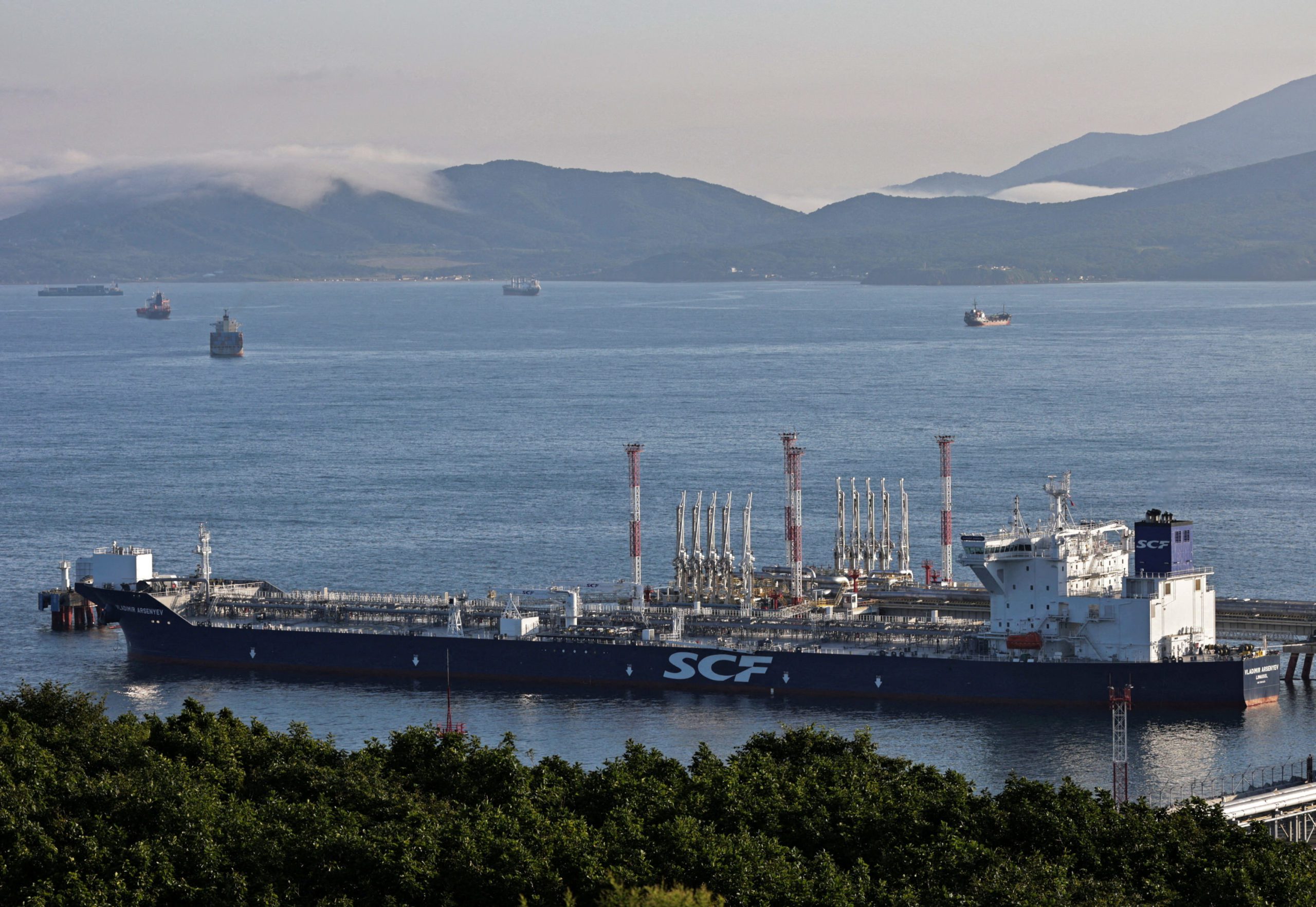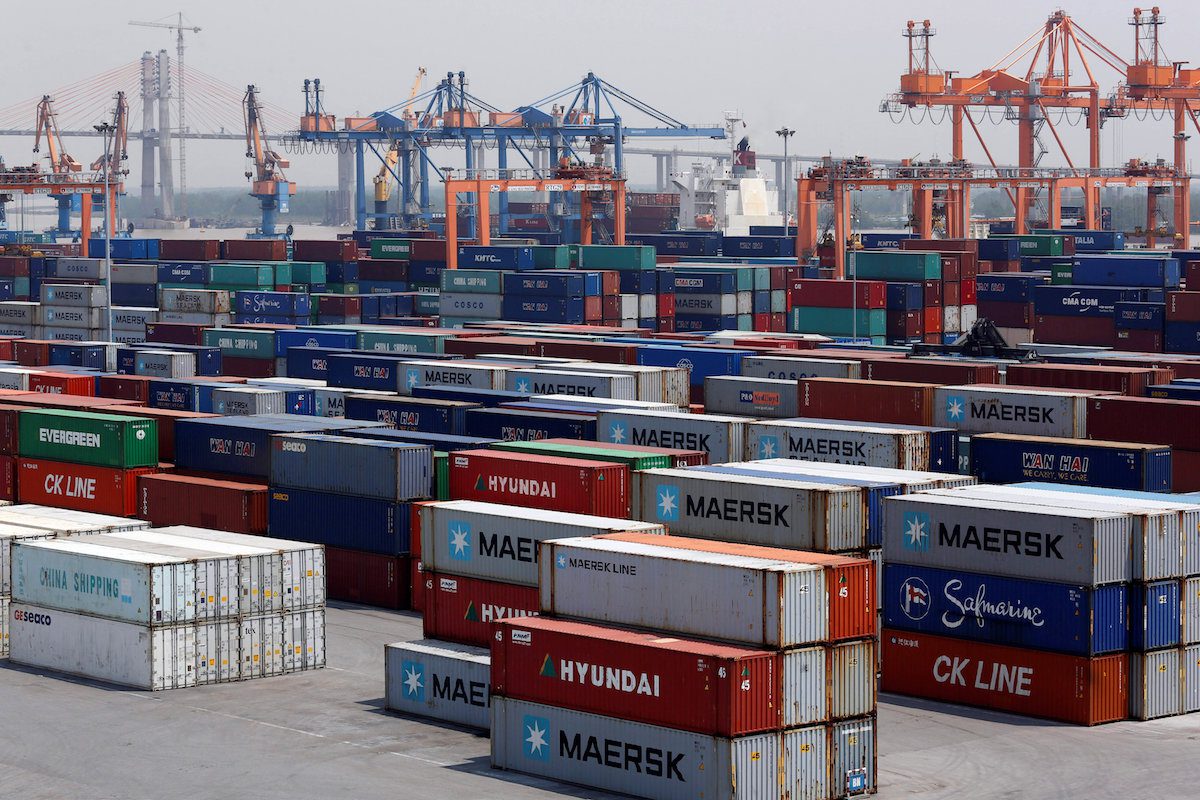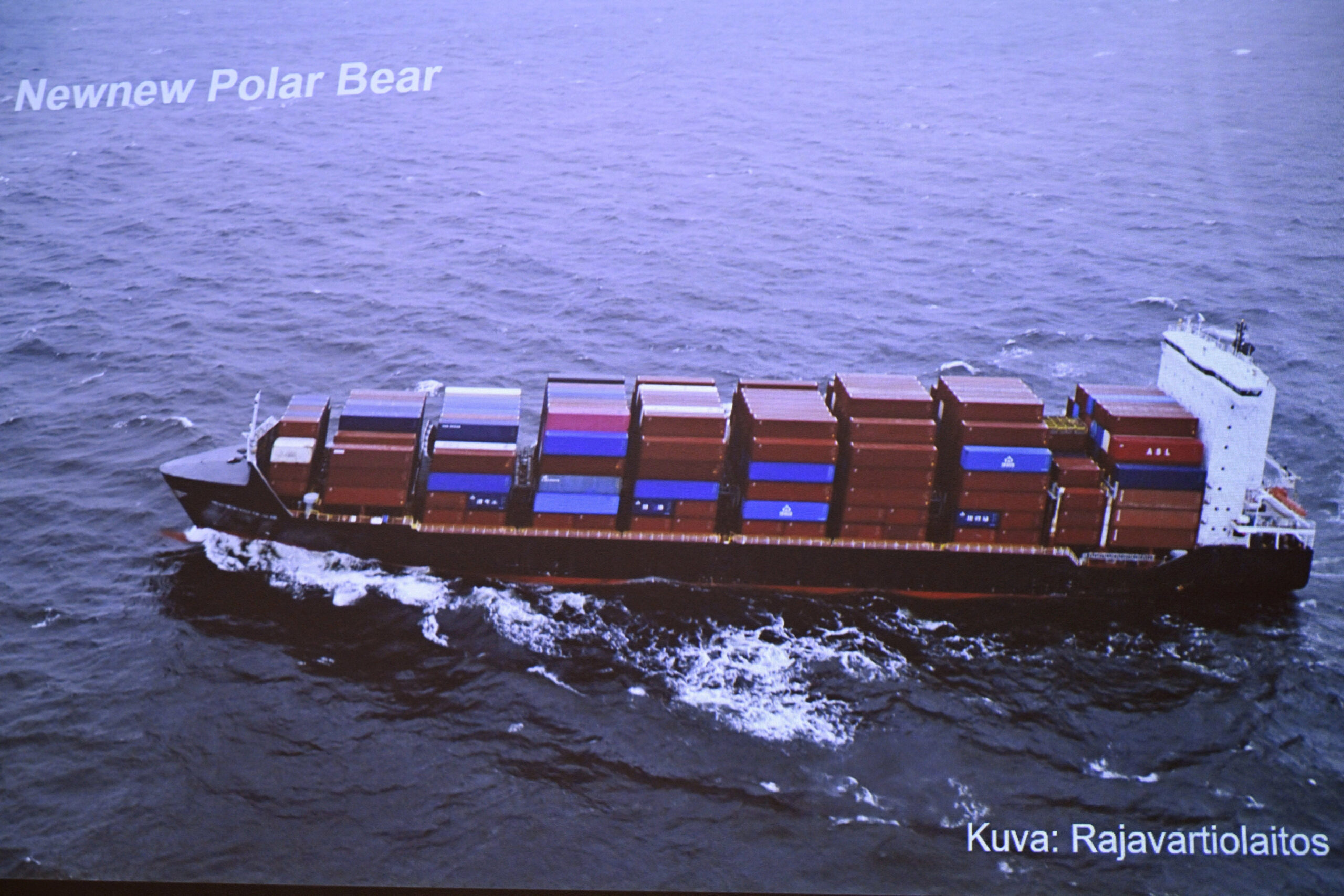By Ewa Krukowska and Alberto Nardelli (Bloomberg) —
The European Union is heading for intense talks in the coming days over how to further curb Russian revenues from exports of oil and petroleum products, and strengthen sanctions to hit President Vladimir Putin’s war machine.
EU diplomats are due to start discussions on Friday about a review of a price cap on Russian crude oil exports to third countries that the Group of Seven and the EU put into place late last year. They also need to decide price levels for new caps on petroleum products, including diesel, by early February.
The thresholds on Russian oil exports to third countries are meant to keep crude and refined products flowing while limiting Putin’s ability to finance his war on Ukraine.
The bloc needs unanimous support from its member states to approve the new price caps, as well as new sanctions on Moscow, a requirement that could make the negotiations heated. Here are the main elements:
Crude Oil Price Cap
The EU agreed to review its crude oil price cap level every two months, which meant the first review was supposed to have taken place earlier this month. The US and allied nations want to wait until March to undertake a review of the crude ceiling — and keep the threshold at $60 for now — because they say the new mechanism is already working to limit prices.
But a coalition led by Estonia, Lithuania and Poland is pushing to lower the crude oil price cap, which they see as too high compared to current market prices. In a proposal shared with other member states earlier this week, they cited estimates from the International Energy Agency that the average Russian oil market price was $54 in December and $52 in January. They are pushing to lower the cap to somewhere between $40 and $50.
“Although the price cap has shown first steps that it works, it is clearly not enough and we should exploit this mechanism further,” the countries said in a document seen by Bloomberg News. “As Russia is planning new attacks against Ukraine, it is of utmost importance to put stronger pressure on Russian economy and cut off its revenues.”
The countries point out that the EU agreed in December to keep the price level at least 5% below average market rates, creating a legal obligation to act now.
Diesel Price Limit
The EU is set to impose new price caps on Russian petroleum products to help stabilize supplies of fuels like diesel on the global market after the bloc’s fuel-imports ban kicks in Feb. 5.
The price levels are set to be another thorny issue, since the levels are linked to the price of crude oil. The European Commission, the bloc’s executive arm, proposed imposing a $100-a-barrel cap on products like diesel that trade at a premium to crude, according to a document seen by Bloomberg News. A lower $45 threshold would be set for discounted goods like motor oils and some lube oils.
Those two ceilings would apply from Feb. 5, but a grace period would be granted to vessels carrying products purchased and loaded before that date and unloaded by April 1, according to a draft EU regulation seen by Bloomberg News. Companies would only be able to access key EU services — such as shipping and insurance — if they comply with the cap and purchase the affected products below the threshold.
If EU members can’t reach unanimous agreement before Feb. 5, the full ban on Russian petroleum products would kick in and likely jolt the market for diesel and other key fuels.
Sanctions on Russia and Belarus
Several European nations are pushing hard for a new round of punishing sanctions on Russia. Their argument is that the price caps on crude oil and refined fuels effectively amount to a relaxation of the original bans, and therefore should be balanced by stronger sanctions on Russian companies and individuals.
New measures the Baltic nations and Poland are pushing for include cutting off more banks from the SWIFT international payments system, adding restrictions on nuclear energy cooperation and banning diamonds and bitumen products.
The EU’s current proposal for what would be its 10th round of sanctions is likely to expand sanctions on Russia’s drone sector and add restrictions on goods used by its military industrial complex, people familiar with the plans said.
Poland is also pushing for extending the EU ban on seaborne oil from Russia to piped crude and imposing a simultaneous system of tariffs and quotas on countries exempted from such restrictions, such as Hungary. Under current rules, European nations can still import Russian oil via the giant Druzhba pipeline system and Hungary has already signaled it would oppose any changes.
While Poland and Germany pledged they would both stop using Druzhba by the end of this year, the government in Warsaw recently announced its oil company PKN Orlen would continue buying small amounts of Russian oil for some time to avoid paying fines for terminating the contracts in the absence of targeted sanctions.
Germany continues to use the Russian pipeline system for what it says are purchases of Kazakh oil. That’s drawn some skepticism from senior Polish politicians, who point out that, in practice, it will almost certainly mean Germany is continuing to take oil that was produced in Russia for some time to come. The practicalities and commercial realities of getting oil that was actually produced in Kazakhstan thousands of miles across Russia and into Germany will be very challenging, if that’s a path that the European country pursues.
The commission has also proposed sweeping new sanctions on Belarus, aligning Minsk with many of the measures previously imposed on Russia. Those measures will also require the backing of all member states.
–With assistance from Piotr Skolimowski, Natalia Ojewska, Alaric Nightingale and Jack Wittels.
© 2023 Bloomberg L.P

 Join The Club
Join The Club











